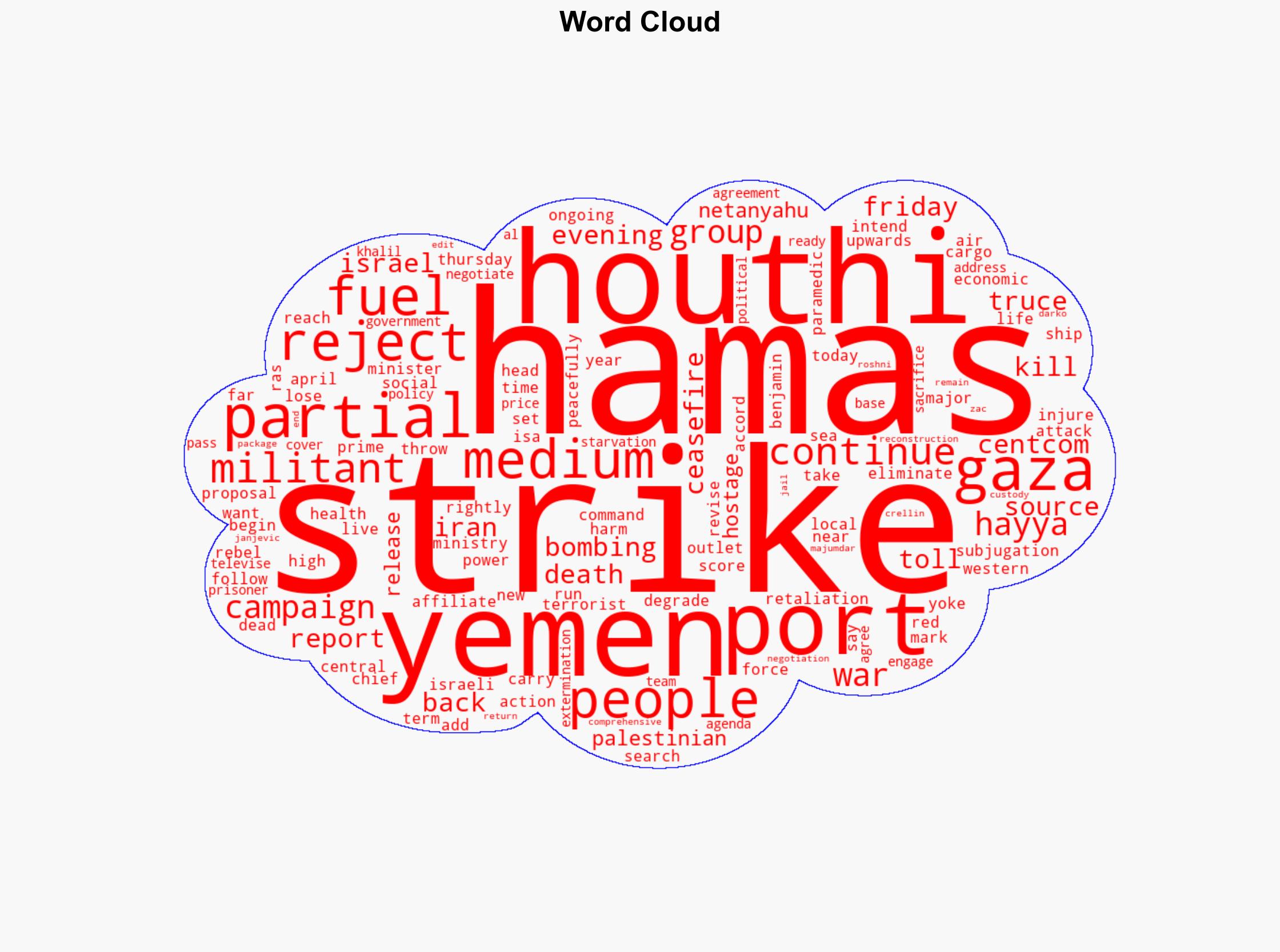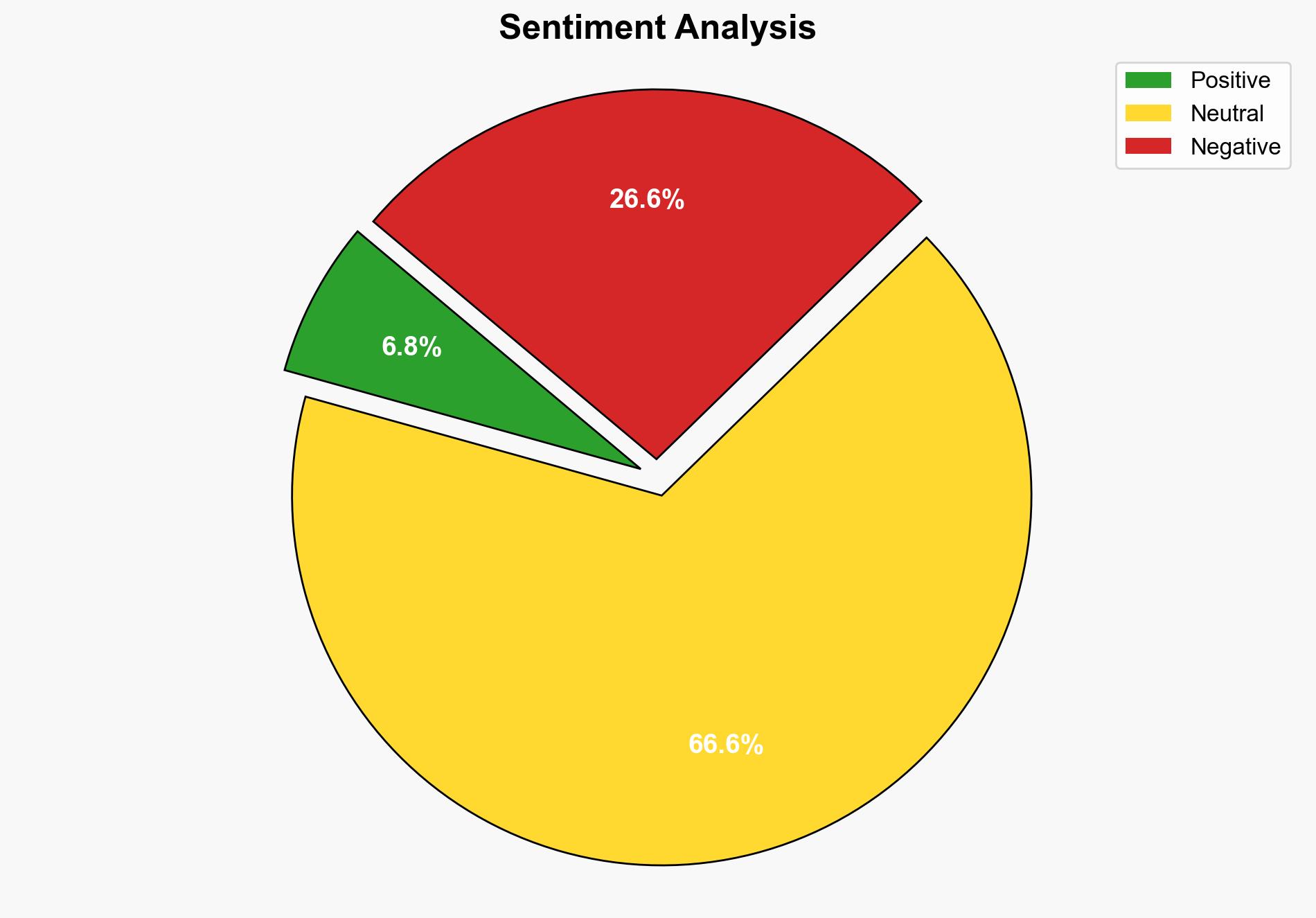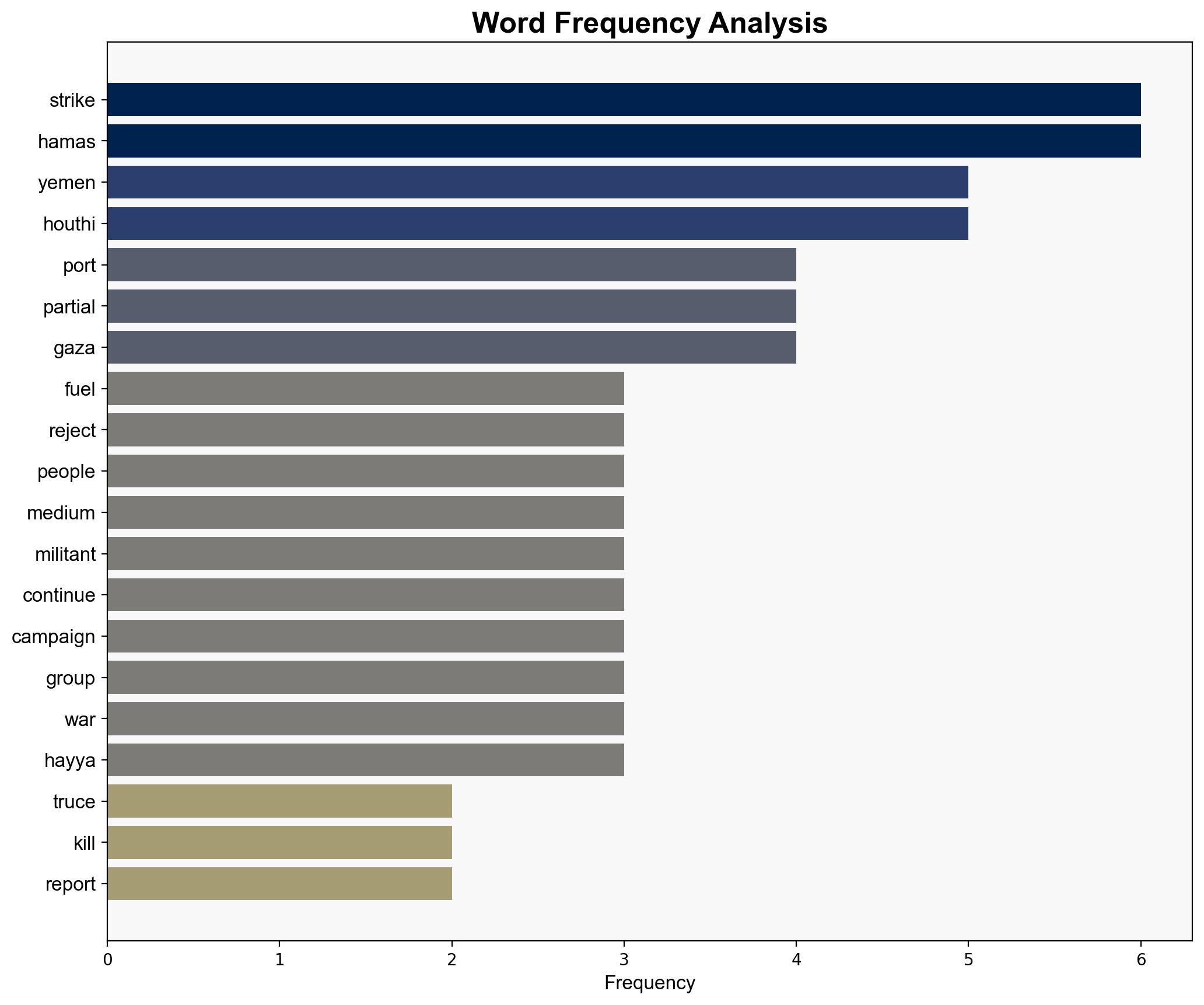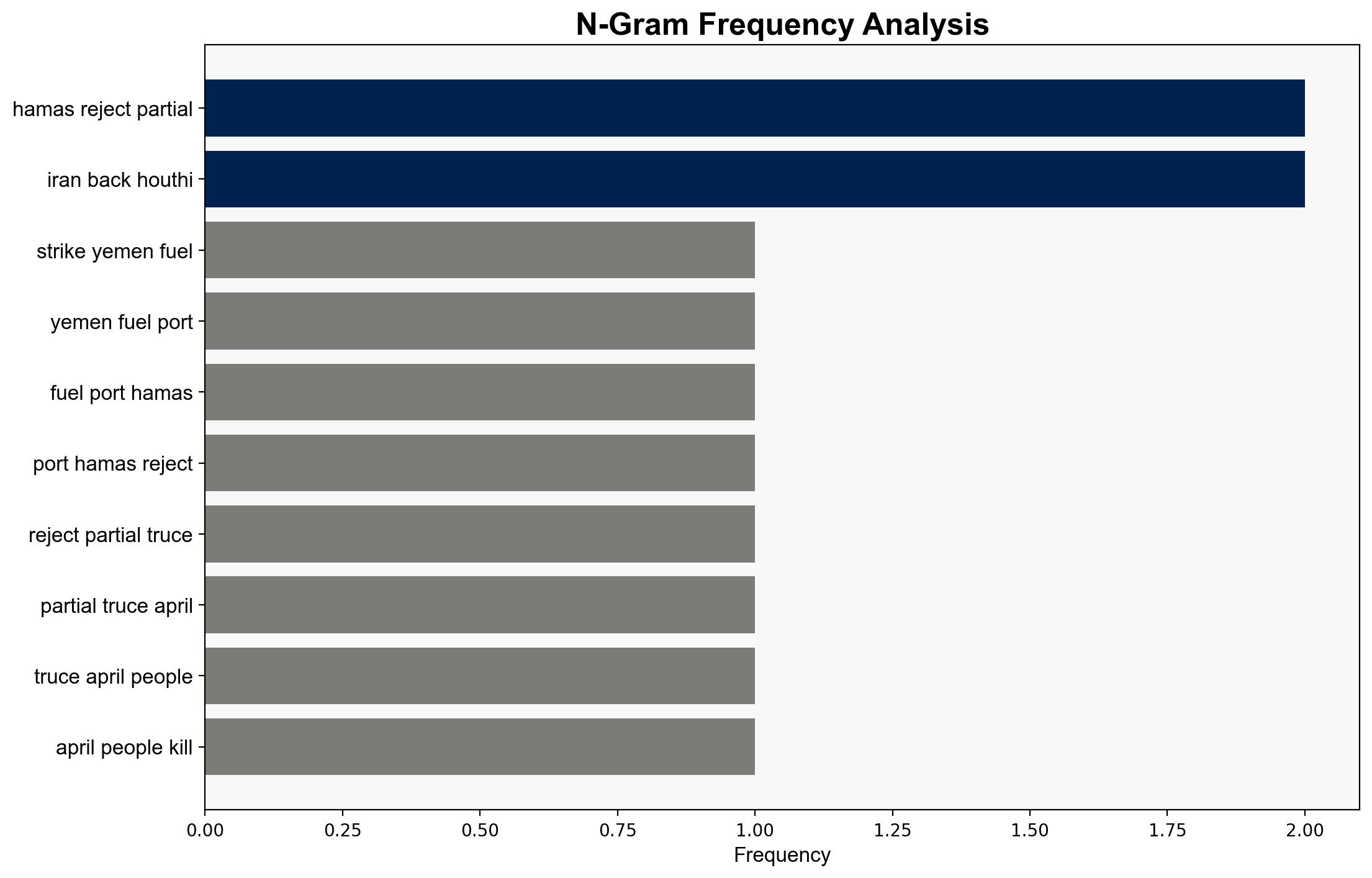US strikes Yemen fuel port as Hamas rejects ‘partial’ truce – DW (English)
Published on: 2025-04-18
Intelligence Report: US strikes Yemen fuel port as Hamas rejects ‘partial’ truce – DW (English)
1. BLUF (Bottom Line Up Front)
The US conducted airstrikes on Yemen’s Ras Isa port, targeting the economic resources of Houthi militants, resulting in significant casualties. Concurrently, Hamas has rejected a partial ceasefire proposal from Israel, demanding comprehensive negotiations. These developments highlight escalating tensions in the Middle East, with potential implications for regional stability and international relations.
2. Detailed Analysis
The following structured analytic techniques have been applied:
General Analysis
The US airstrikes on the Ras Isa port aim to weaken the Houthis’ economic capabilities, potentially reducing their operational capacity. The high casualty count underscores the intensity of the conflict and the humanitarian impact on Yemen. The ongoing US campaign is a response to Houthi attacks on shipping lanes, which are linked to broader geopolitical tensions involving Iran and Israel.
Hamas’ rejection of a partial ceasefire indicates a strategic stance to leverage negotiations for broader concessions, including the release of hostages and reconstruction efforts in Gaza. This refusal suggests a continued cycle of conflict unless comprehensive agreements are reached.
3. Implications and Strategic Risks
The US strikes could exacerbate humanitarian crises in Yemen, potentially fueling anti-US sentiment and complicating diplomatic efforts in the region. The persistence of hostilities between Israel and Hamas risks further destabilizing the region, with potential spillover effects on neighboring countries and global energy markets due to disruptions in the Red Sea shipping lanes.
4. Recommendations and Outlook
- Enhance diplomatic efforts to mediate a ceasefire between conflicting parties, focusing on comprehensive peace talks.
- Increase humanitarian aid to Yemen to mitigate the impact of ongoing military operations on civilians.
- Monitor regional shipping routes for disruptions and develop contingency plans to ensure the security of maritime trade.
- Scenario-based projection: If comprehensive negotiations are initiated, there may be a reduction in hostilities and a gradual stabilization of the region. Conversely, continued military actions could lead to further escalation and international involvement.
5. Key Individuals and Entities
Khalil Al-Hayya, Benjamin Netanyahu





